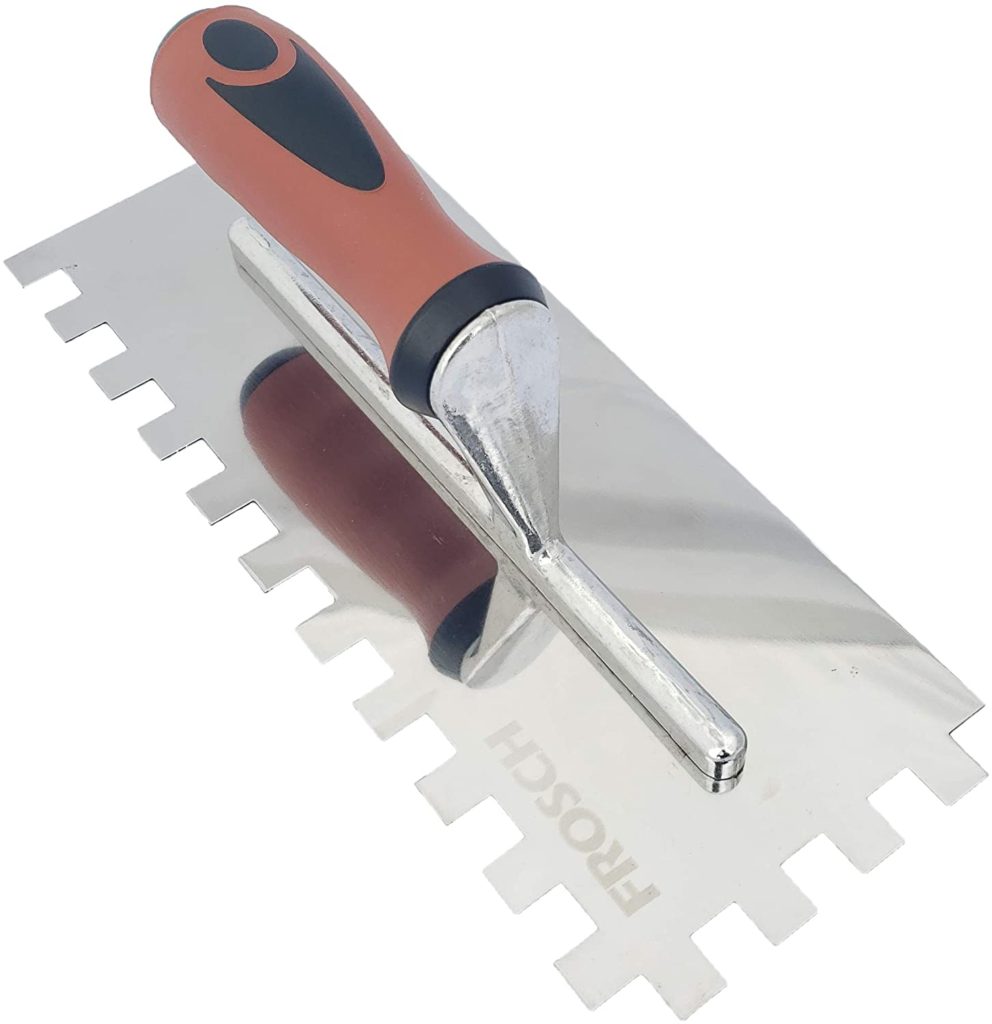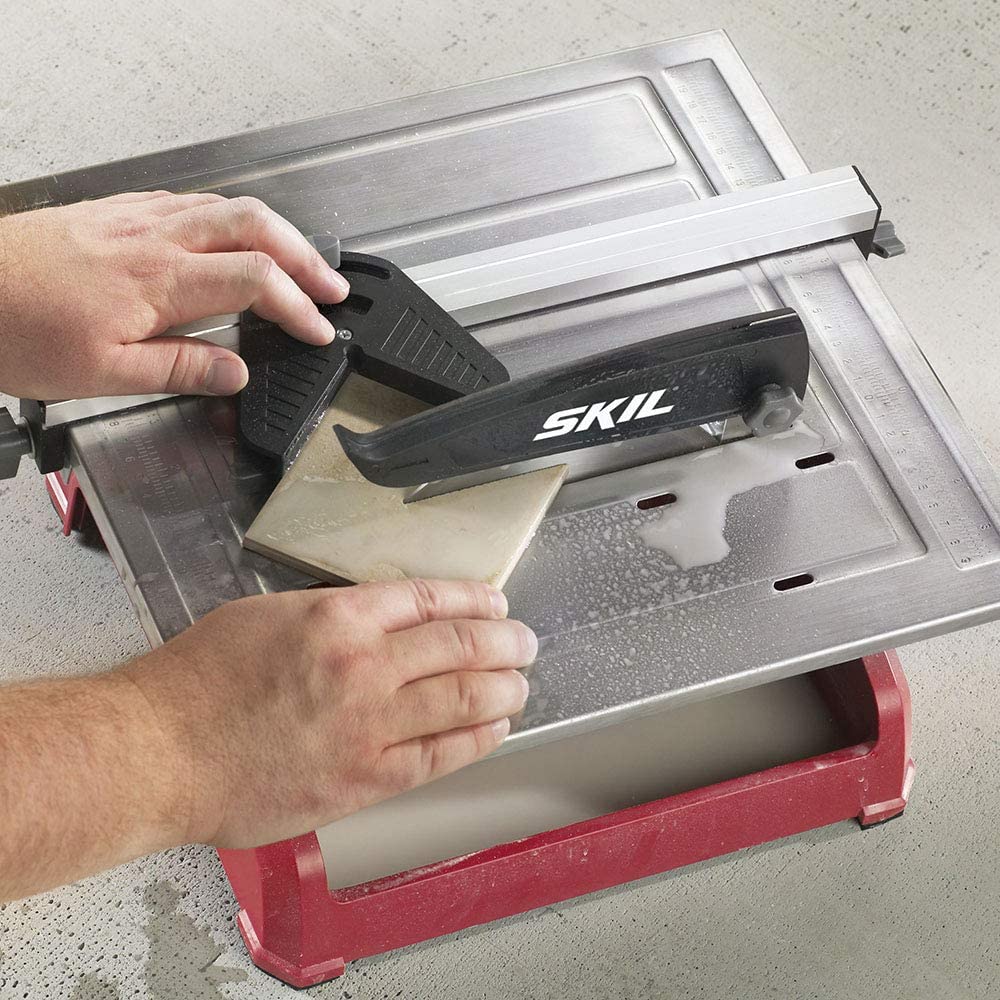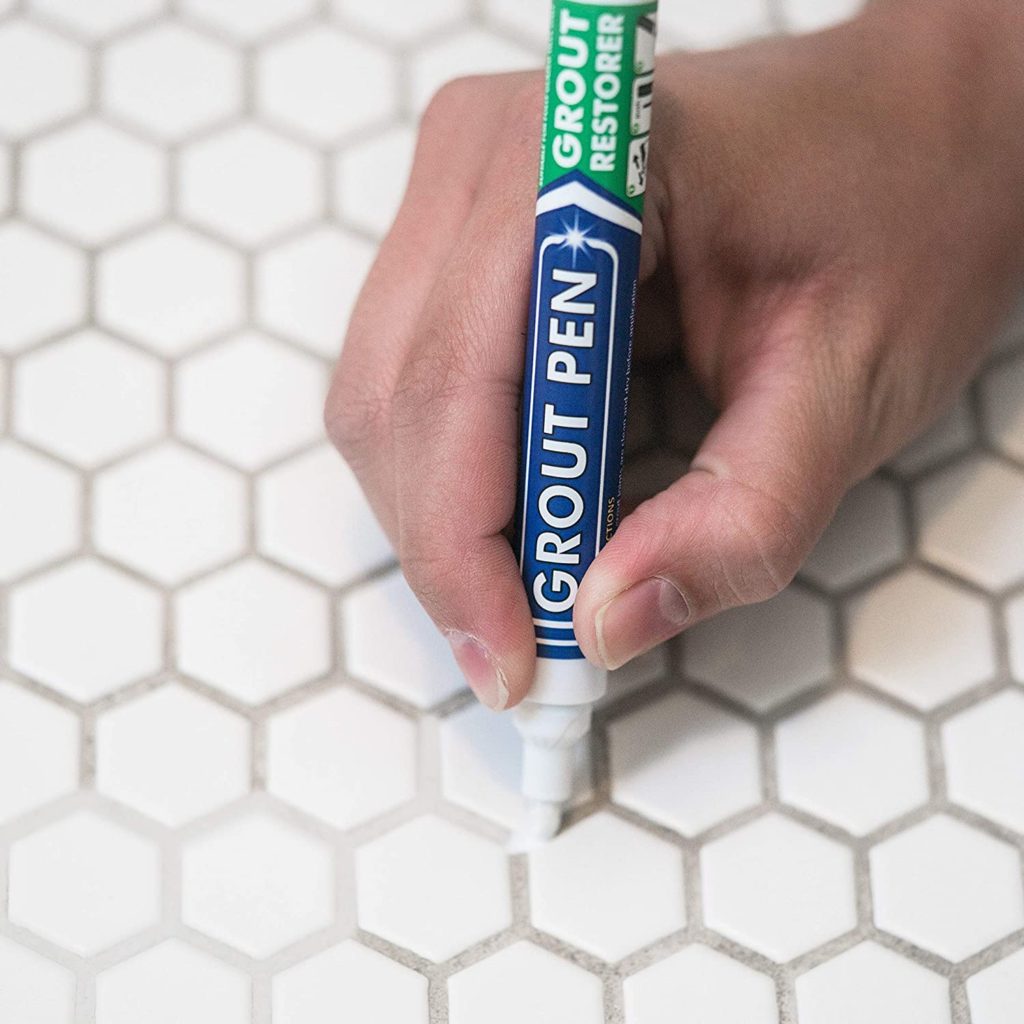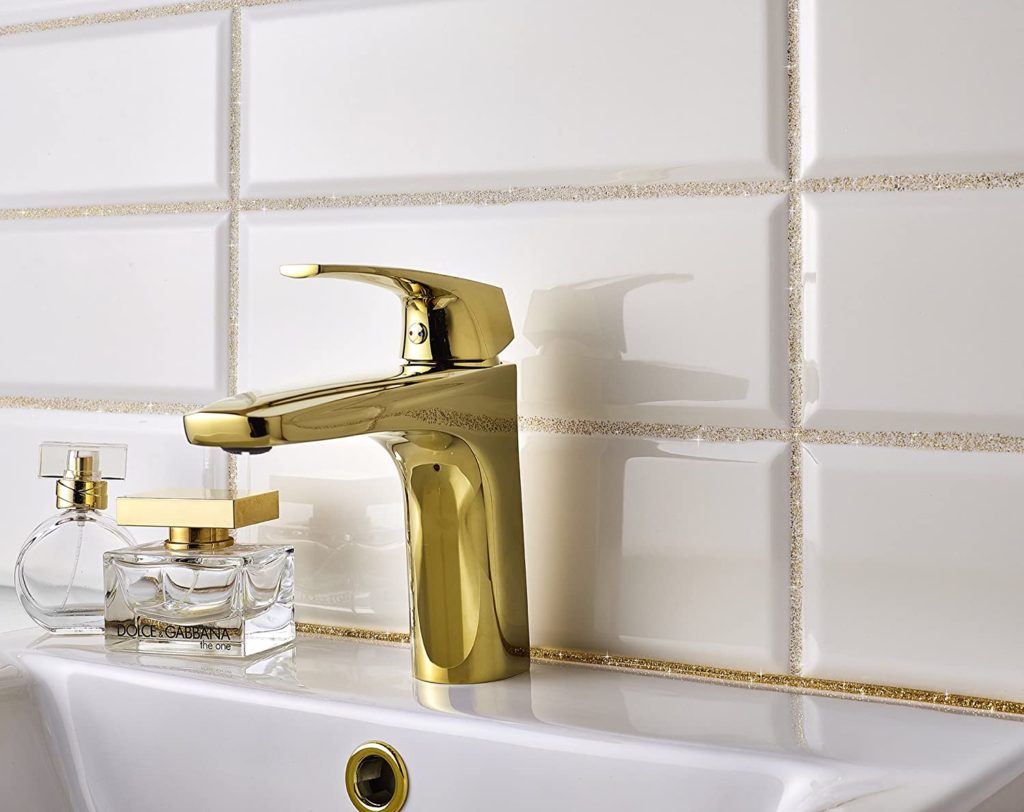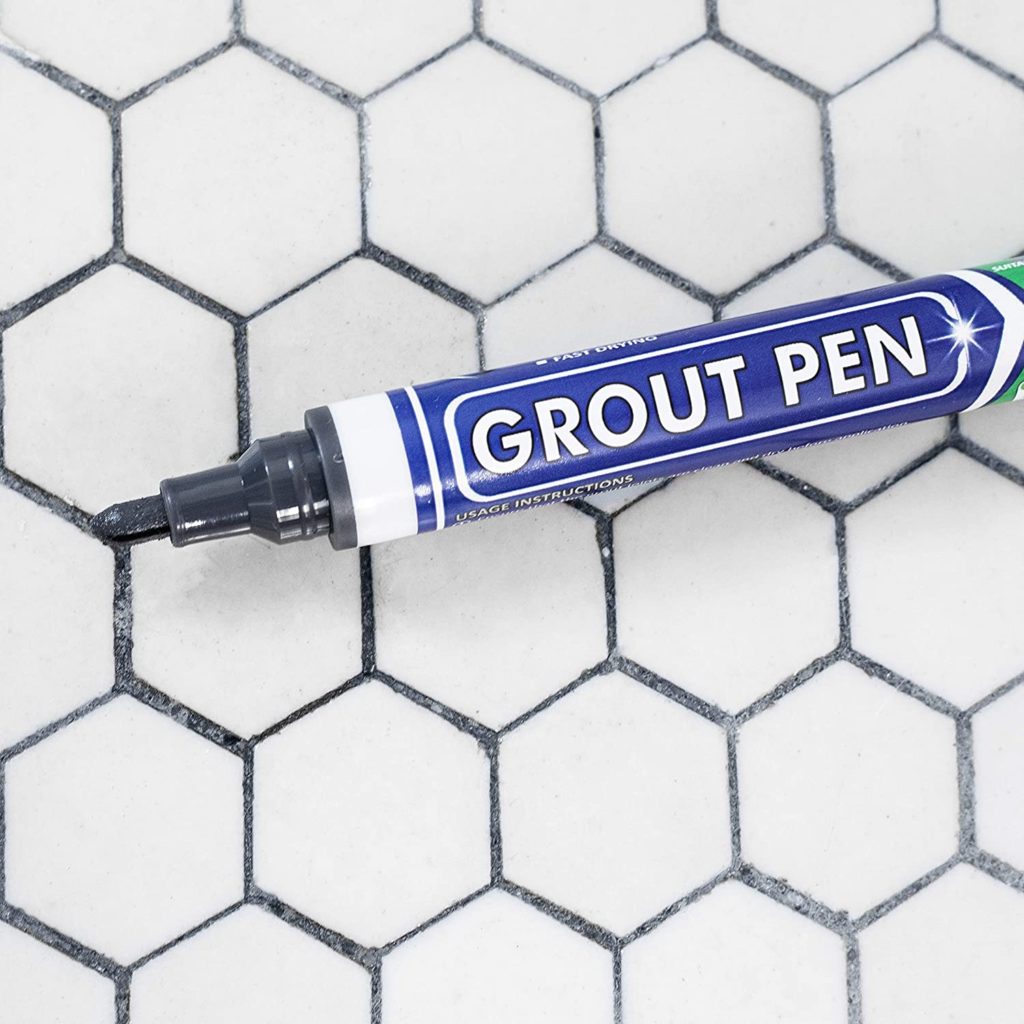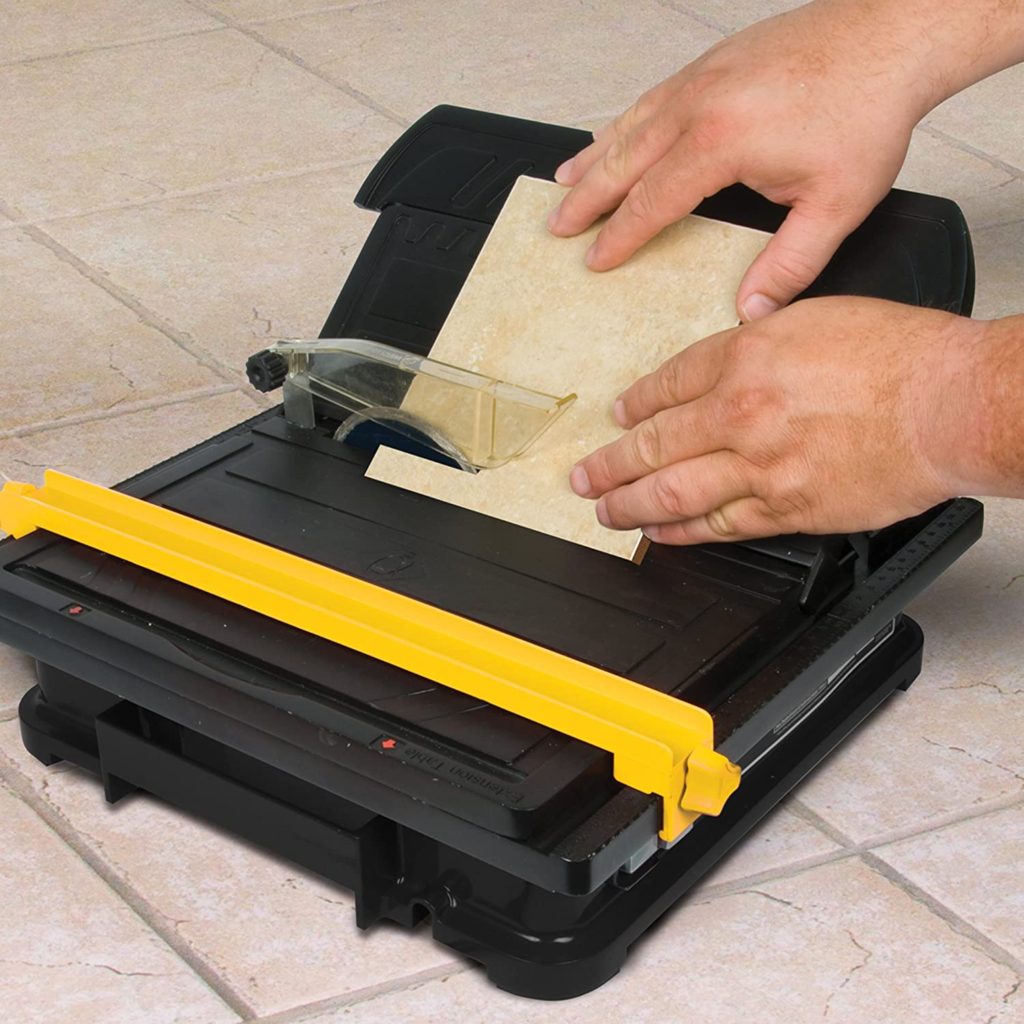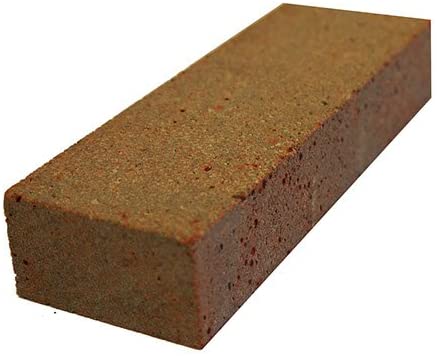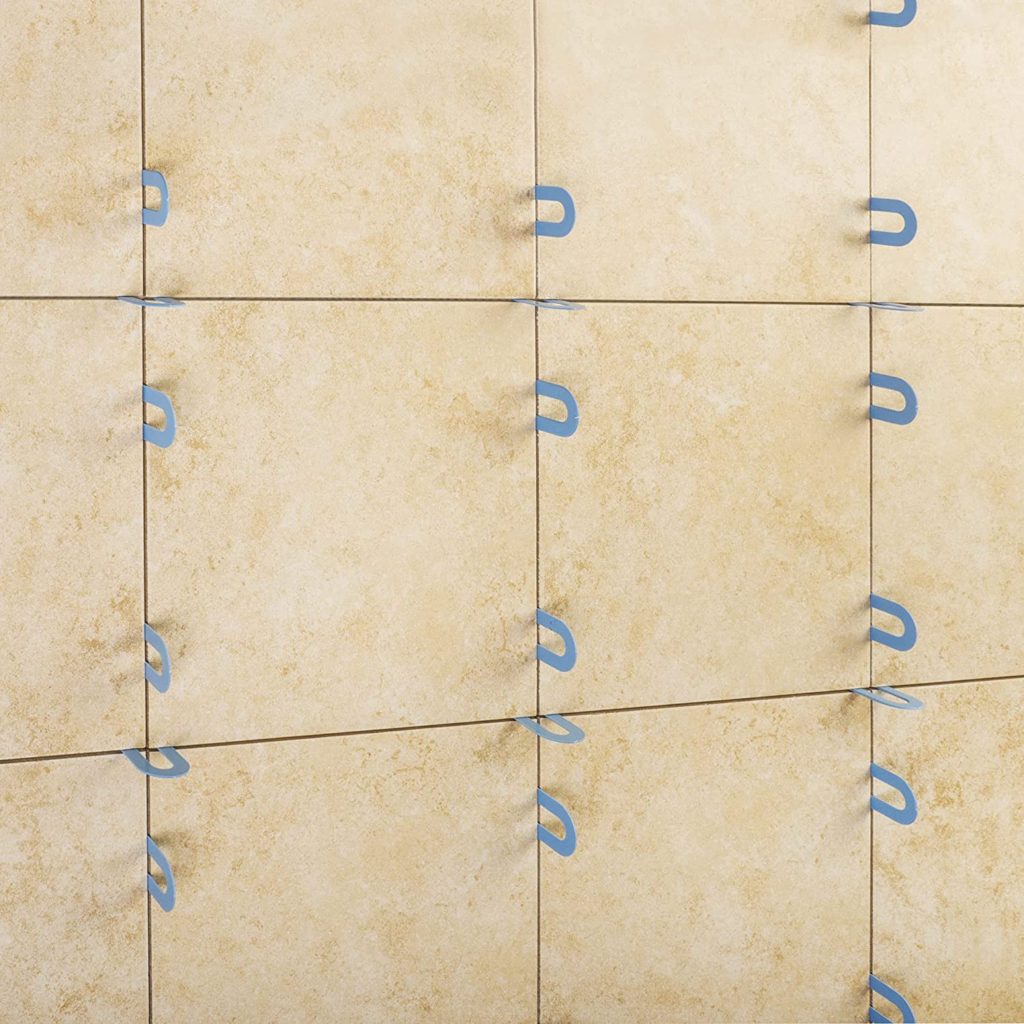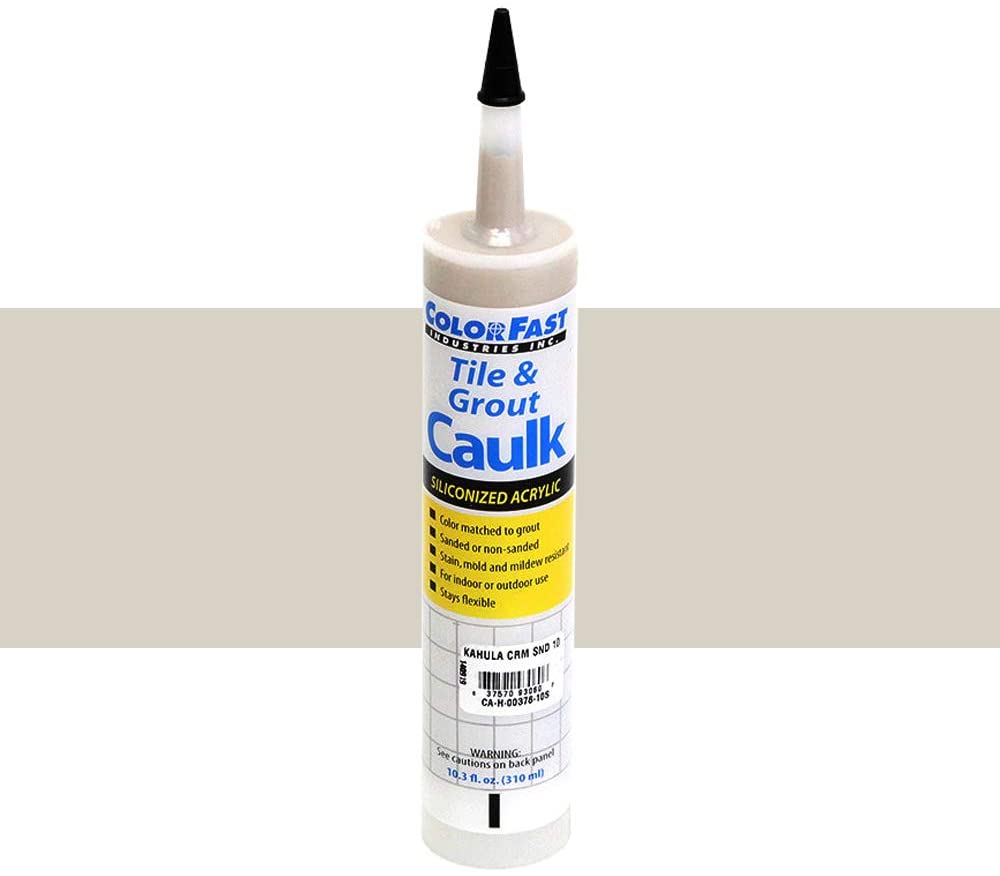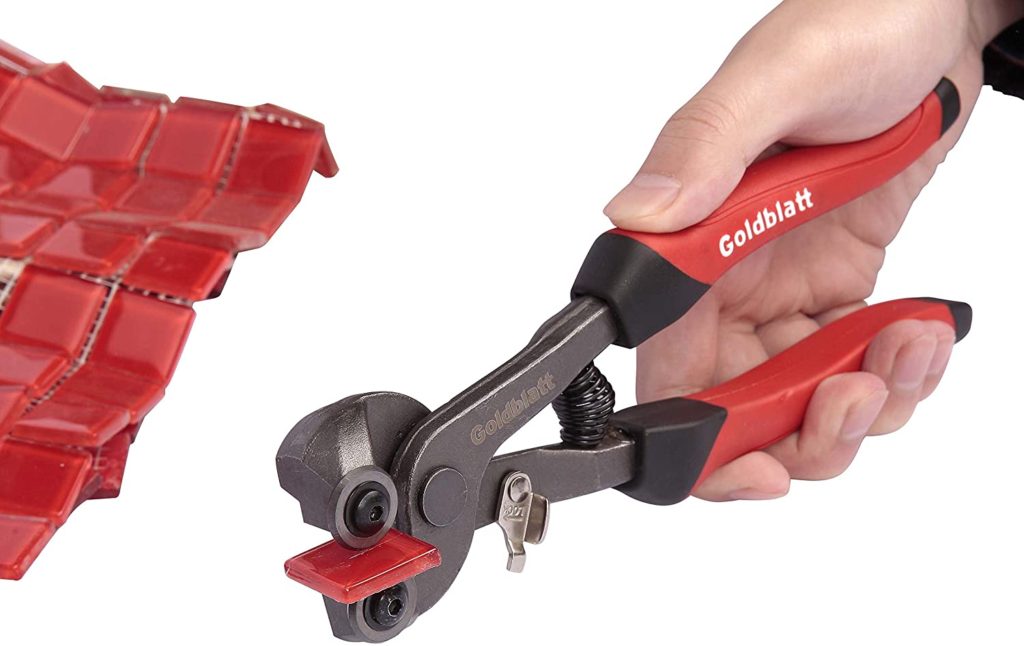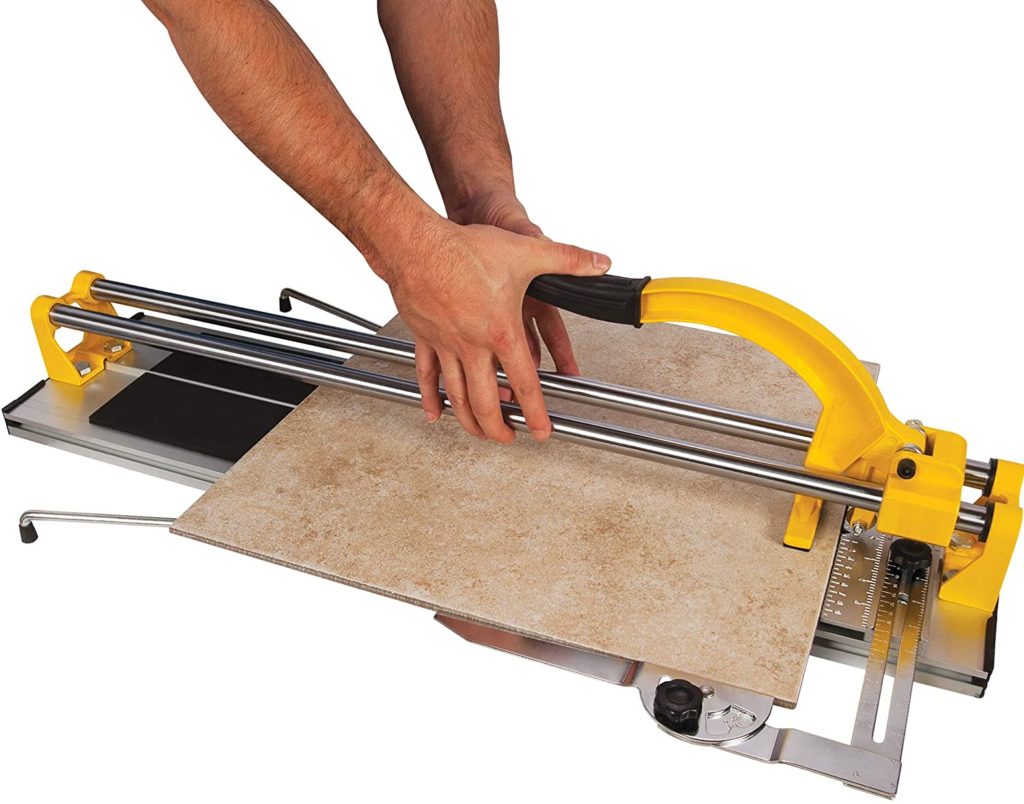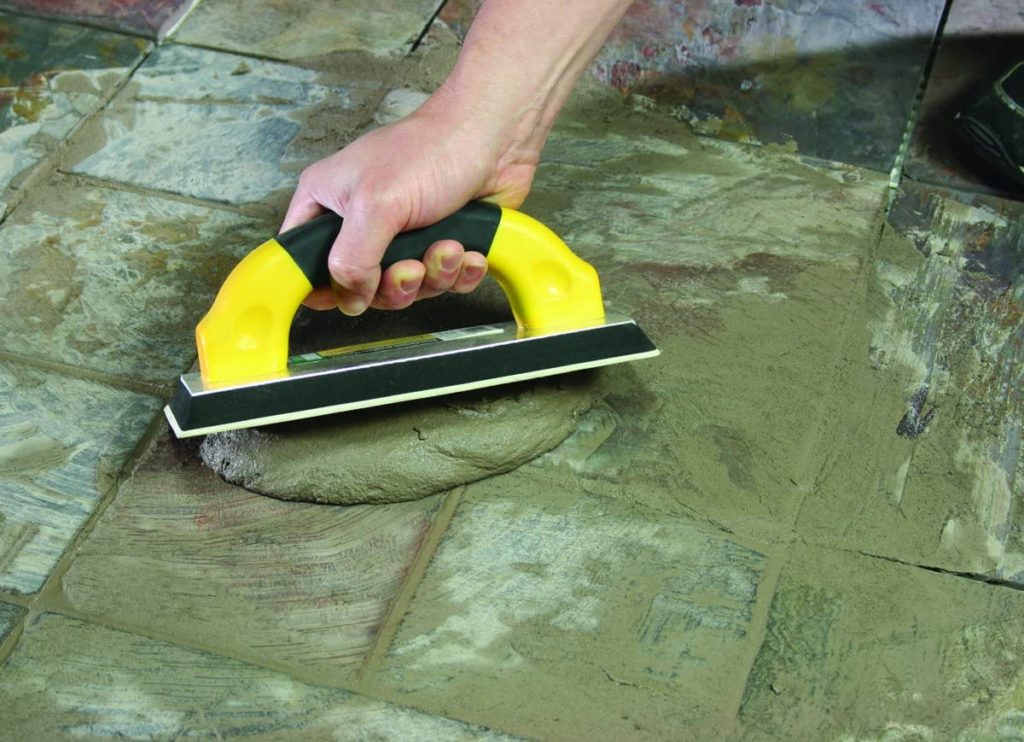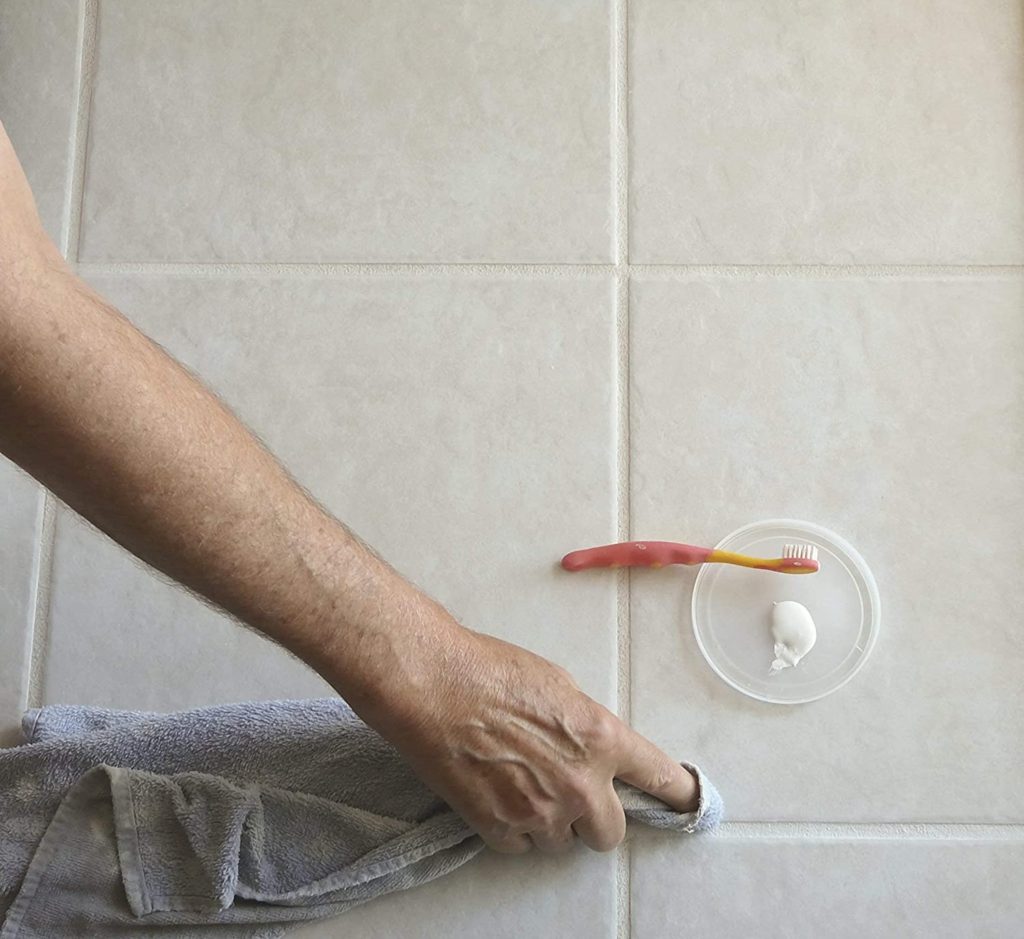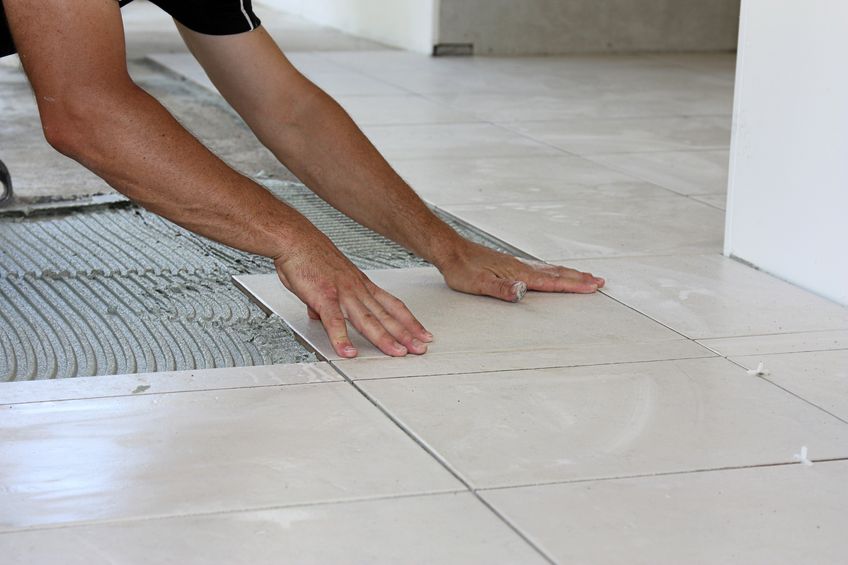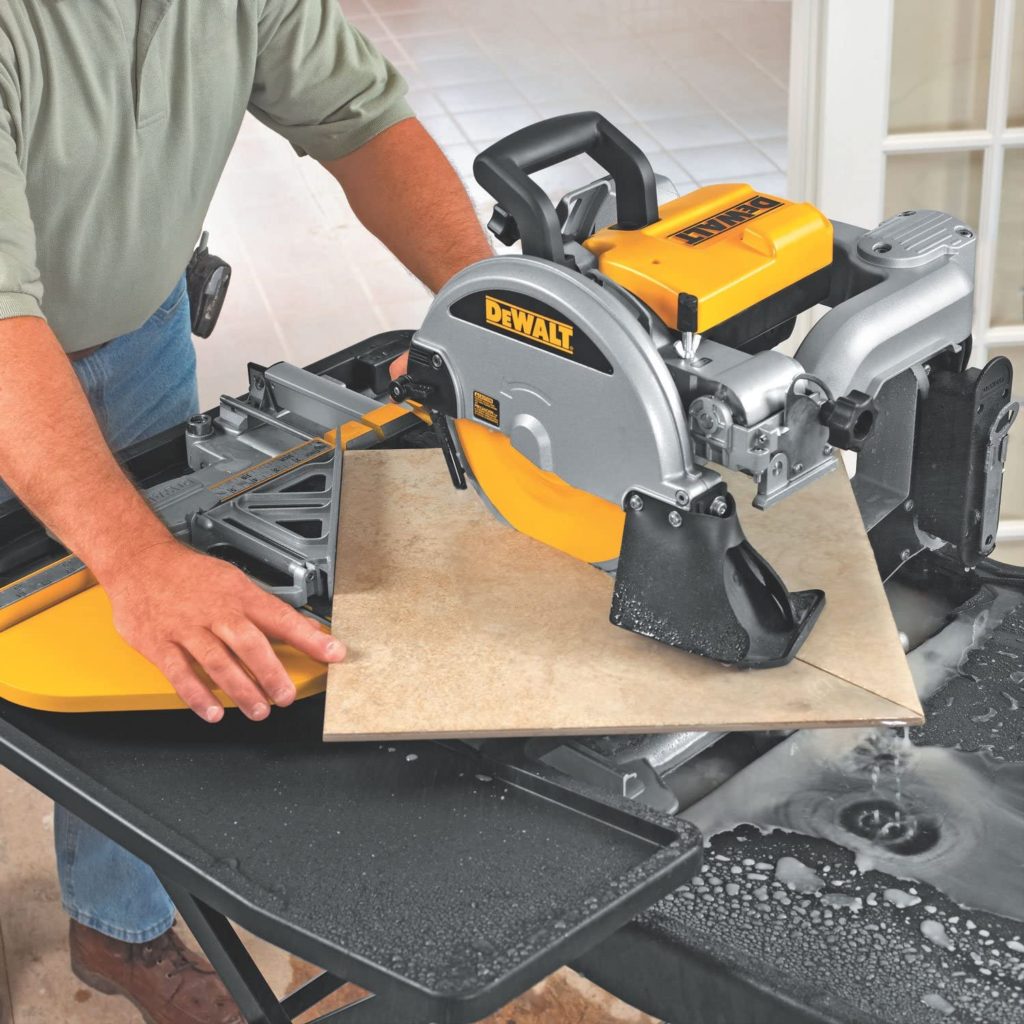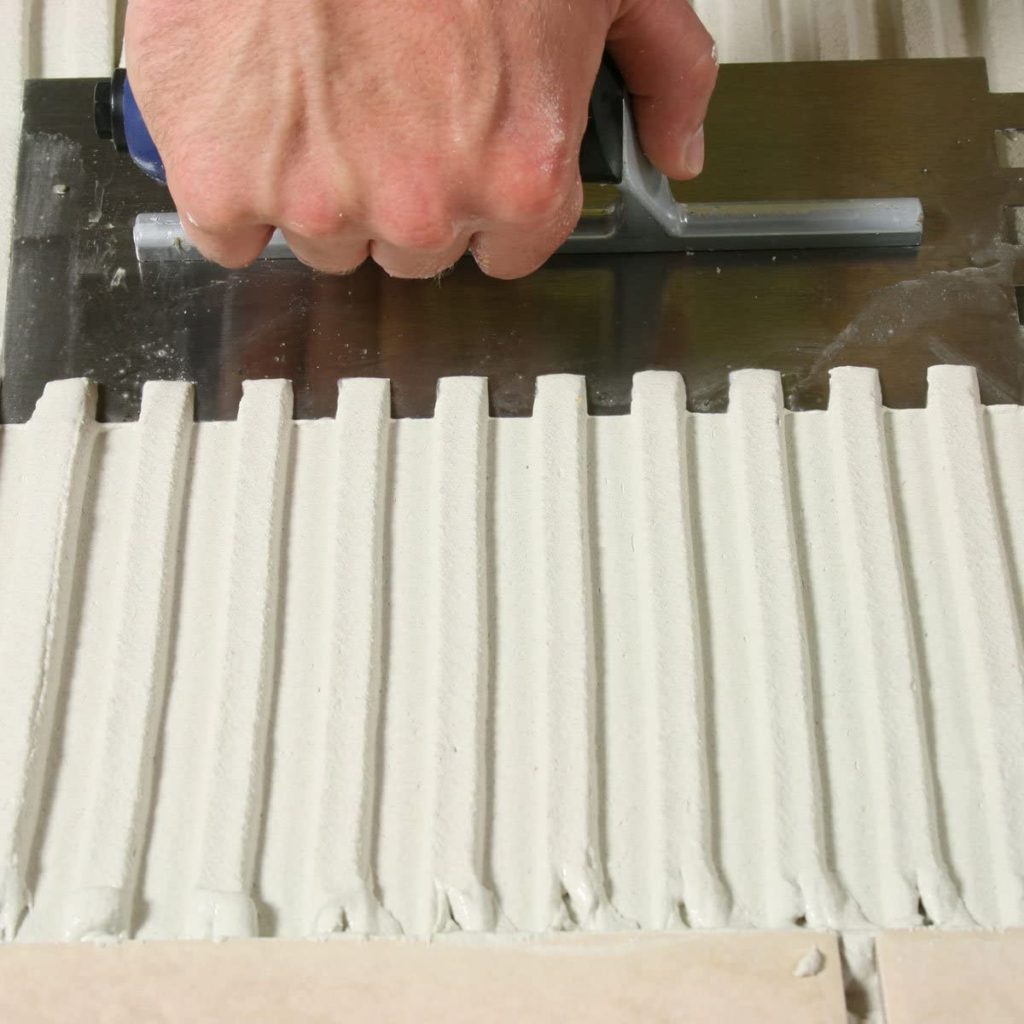
Trowels are a necessity for completing all tiling projects. But of course, you will have to make sure you have the right one for the job at hand to make sure it is a success. So here’s what you need to know about tile trowels before getting started.
Margin Trowels
These simple tools are one of the most useful and inexpensive making them an essential part of your tool kit. In tiling they are used for a wide array of jobs like mixing tile grout and adhesive, back buttering for extra adhesion, cleaning grout lines, prying sunken tiles, helping with tile removal, cleaning up messes, and even scooping from your mixing bucket.
Because they are also used for many other purposes such as masonry they come in a lot of different sizes. The best margin trowel size for working with tile is one that has a blade that is six to eight inches long and is two inches wide.
Notched Trowels
When it comes time to apply the tile adhesive also called thinset you’ll need a notched trowel. Their design uses three sides to accomplish this one that is flat and two that are notched with U, V, or square-shaped notches. The flat side is used to apply the thinset to the substrate.
The other two notched sides, one long and one short, are used to comb over the thinset so that it is left with the correct amount to adhere to the tile in a series of uniform ridges without an excess. There are multiple shapes and sizes of notches each of which is suited for different types and sizes of tile. In general the larger the size of the notch the more thinset it is meant to apply while smaller notches apply less.
The shape can also make a difference as V-shaped notches spread the least concentration of adhesive, while square notches the most with the U-shaped variety in the middle. By using too little thinset you run the risk of broken or cracked tiles while too much can be a major pain to remove and is always a mess. It is therefore very important to choose the right size notches.
Here’s a quick tile trowel size guide to help you out:
-For mosaics tiles that are two inches square or less try a 3/16” x 5/32” V-notch trowel.
-For mosaics up to four inches square try a 1/4” x 3/16” V-notch trowel.
-For floor and wall tile four inches to eight inches square try a 1/4” x 1/4″ square or U-notched trowel.
-For floor and wall tile eight to sixteen inches square try a 1/4” x 3/8” square or U-notched trowel.
-For floor and wall tile sixteen to twenty-four inches try a 1/2” x 1/2″ square or U-notched trowel.
Extra Notched Trowel Tips
If you are not sure if you are using the correct size during setting you can easily check by setting a few tiles first and then quickly prying them up and looking to see if the entire surface has made contact with the adhesive. If not, simply move up to a trowel with the next size notch.
It may also happen that the size you are using is too big, you’ll be able to tell if this is the case if there is excess adhesive coming up around the edges of the tile. For tiles, twelve inches in size and up back buttering with thinset is usually a good idea as well. Tiles that have a textured back should be back buttered too, and may require a large notched trowel such as one that is 1/2″ x 1/2″.
Both the margin and notched variety are tile trowels that you’ll definitely need to complete setting as well as other important tasks. Very handy yet cheap, they are essential tools that absolutely won’t break your budget. Just make sure you purchase the type and size which best suits the needs of your installation and whether you are mixing grout or setting tile you’ll be on the fast road to a winning end result.
What To Use To Cut Tile
Buy on Amazon Most tile projects will require cutting of some type. There are a few different tools to help you get the job done quickly and easily. So if you’re wondering what to use to cut tile, here are your options. Tile Nippers One of the most basic tools for...
Grout Pen Basics For Guaranteed Success
Buy on Amazon Dirty and dingy grout lines are an unsightly problem. They take from the look of any space and can be downright embarrassing. But with the help of a handy little tool, anyone can make them look like new. A grout pen will give those lines a fresh and...
The Insider’s Guide To Glitter Grout
Buy on Amazon How can you bring your dull-looking grout to life and make it sparkle and glimmer with style? With glitter grout of course! Here’s what you need to know about this wildly popular new option that’s taking walls and floors by storm. Standard Grout Has A...
Add Extra Color To Your Tile Installation With These DIY Tools
Buy on Amazon There are quite a few different ways to add that extra touch of color to your tile project. This could be to make an old installation look new or make sure a new installation looks fantastic from the start. Here are the top tools you can use to get the...
Getting Started With Tile Cutting Tools
Buy on Amazon When working with tile you will often need to make cuts. There are a few different tools you can use depending on what you are doing. Here’s what you need to know about the three most useful choices. Tile Nippers Sometimes you may need to take small...
Stay Safe And Keep Tile Smooth With A Rubbing Stone
Buy on Amazon A tile that has just been cut can have razor-sharp edges. These edges can produce some very painful injuries if not handled with care, and even when they are, accidents can happen. You can help to avoid injury by using a simple tool known as a rubbing...
The Essentials Of Tile Spacers
Buy on Amazon In the past rope, nails, screws, and even sticks were used to keep tiles equidistant from each other during installation. Luckily by the nineteen fifties the need for much more reliable and convenient spacers for tiles helped to bring about the creation...
Caulk For Tile Projects
Buy on Amazon In the main body of a tile installation grout is used in-between the tiles. However different materials naturally expand, contract, and move. These processes can cause tile grout to crack or even cracked tile if the grout is used where two different...
Your Basic Tile Safety Kit
Buy on Amazon When working on any kind of home improvement project safety should always be taken seriously and with tile, it is no different. This should be the case regardless of how big or small the job. In fact, more often than not, it is when completing smaller...
Tile Nippers A Must Have Tool For Every Project
Buy on Amazon Every tile setting kit needs a pair of nippers. These basic hand tools are a necessity since virtually every project will need at least a few simple curved cuts. When you need to accommodate things like toilet flanges, faucet valves, doorcases or any...
A Tile Cutter Makes Cutting A Snap
Buy on Amazon Just about all tile installations will require cutting. However, you don’t necessarily need to purchase a tile saw if you will be completing the project yourself. For jobs that won’t demand an extremely large quantity of cuts or very heavy tile, a tile...
Tile Grout: The All-In-One Guide On How To Grout Tile and Clean Tile Grout
Buy on Amazon The spaces in-between tiles need to be protected so that moisture does not get into the backing of the tiles causing damage and ultimately the tiles having to be replaced. This could mean just a few tiles being removed or with a lot of damage all of...
Bring New Life To Your Tile Grout With Grout Colorant
Buy on Amazon As your tile floor, wall, or countertop ages it’s inevitable that at some point its grout will become stained or discolored to the point that no amount of scrubbing or cleaning will help. Light or white-colored grout is particularly vulnerable and this...
Tile Adhesive: Everything You Need To Know!
When installing tile, you'll need to use the appropriate tile adhesive. So here is your complete guide, with everything you'll need to know in order to make sure you choose the right one and ensure your project is a success. Tile Adhesive Basics Tile adhesive is...
The Tile Saw: A Quick Start Guide!
Buy on Amazon Just about every tiling job requires cutting tile. What you will be cutting, how much, and in what manner will determine the tool you use to cut with. Most of the time the easiest and most efficient option is a tile saw. While they may look similar to...
